Will you buy $249 Google Chromebook?
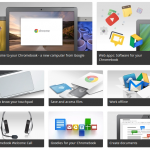
Yesterday, Google suddenly unveiled, in cooperation with Samsung, the first ARM-powered Chromebook and for remarkably affordable price -- $249. There also is a $329.99 model, that includes 3G. Both are available for pre-order now from major retailers, and Google Play will join stores selling the WiFi-only model next week.
The question: Will you buy? It's the right time to ask, because the price is so appealing. From my initial testing, about 24 hours now, it's hard not to recommend this new Chromebook, if for no other reason than price. But as I'll further explain in my forthcoming first-impressions review, there are plenty of trade-offs for the price -- and benefits, too.
Apple hosts October 23 'screw you, Microsoft' media event
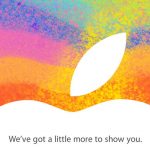
The invitations are out, and rumors proved true. Apple will hold a special press event, presumably for iPad mini, on October 23 -- that's three days before Microsoft launches Windows 8 and Surface tablets. Talk about party crashing. Apple almost surely will steal much of its rival's thunder, splitting media coverage and assuring that most every Windows 8 or Surface blog post or news story will mention Apple and iPad mini.
Anyone who thinks the timing isn't deliberate lives in lala land. Capitalism is all about brutal competition, and if iPad mini debuts next week Apple will heap hot coals through Microsoft's Windows and onto its shiny Surface. InterWeb writers have obsessed about the rumored tablet for weeks. Its arrival will be almost as blah blah worthy as Steve Jobs returning from the dead.
PC market collapses ahead of Windows 8 launch

If you can't figure out why CEO Steve Ballmer talks about reinventing Microsoft as a "devices and services company", Jay Chou, IDC senior research analyst, has an answer. "PCs are going through a severe slump". That's being polite in mixed company, when the F-word is so much more appropriate. Third-quarter PC shipments accentuate an already dreadful trend. Analysts expected slowing shipments as the market prepares for Windows 8, but nothing quite like this. The seasonal back-to-school lift collapsed, with even Mac shipments slowing.
Global PC shipments fell 8.6 percent year over year, according to IDC, surpassing the minus 3.8 percent forecast. Gartner's estimate is a more generous 8.3 percent decline. The United States, a region recently in love with tablets, is in free fall, with shipments down 13.8 percent by Gartner's reckoning and 12.4 percent according to IDC. For the better part of a year, analysts excused declining PC shipments as market anticipation for Windows 8. But the slowdown during back-to-school buying season foreshadows weakness ahead.
Get a life! Microsoft isn't trying to be Apple

Yesterday's Steve Ballmer "devices and services company" letter unleashes a torrent of idiot punditry. I can only laugh at the sheer stupidity of writers infatuated with the idea Microsoft wants to be Apple, or putting forth such lunacy to sack pageviews.
Read Ballmer's 1,300-word missive again. Microsoft's focus on devices and services has little to nothing to do with Apple. The cloud-connected device era is here and Microsoft embraces it to maintain computing relevance. The company has been on this course for years. Research and development takes time, and the good ship Microsoft is too large to change course in a few months -- or even a few years. The sheer number of carefully coordinated new (and largely changed) products shipping simultaneously (or soon after) clearly indicates a massive undertaking long planned.
Microsoft wants to become Apple, but can't

Microsoft has a long history of copying Apple. Back in the early 90s, Bill Gates' company introduced features found in the Macintosh GUI into Windows 2.0, sparking a copyright infringement lawsuit (Apple's taste for litigation is nothing new). Microsoft arguably has pilfered ideas from its rival's OS ever since -- Windows’ taskbar and Aero Peek certainly share clear similarities with OS X's Dock and Exposé. When the iPod became a massive hit, Microsoft introduced the Zune. Apple stores are hugely popular, which is why we’re now seeing Microsoft Stores popping up everywhere. Surface, in a way, copies the iPad, although of course Microsoft has tried (and failed) to popularize tablets since 2002.
And yes, before I go too far into this article, I’m aware the above paragraph could be seen as troll bait, so I’ll point out that Microsoft copies from other companies too -- Google being a major example -- and Apple, in turn, has lifted ideas from Microsoft, particularly from its operating system. Big companies copy from one another, it’s a fact of life. My point, however, is when Apple does something exceptionally well, Microsoft is keen to try and follow suit.
You can forget iPad mini
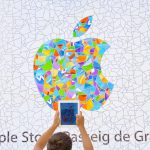
I did something quite shocking yesterday -- talk to my boss on the phone. Yes, we both occasionally get sentimental about such old-fashion communications. Among the topics: iPad mini, which is perennial rumor topic recently. Neither of us could quite fathom why or for what price a smaller Apple tablet makes sense. A new survey makes iPad mini all the more perplexing, and all the less a good idea.
According to an August TechBargains.com survey of 1,332 shoppers, 50 percent wouldn't buy iPad mini, while 45 percent would purchase iPhone 5. Meaningful context: The shopping comparison site conducted the survey before either product was announced, equally gauging sentiment based on rumors. Only 18 percent of respondents would buy the tablet. But that low number only hints at the deep level of disinterest.
Get 21GB of space on MegaCloud for free [BetaNews Exclusive Offer]
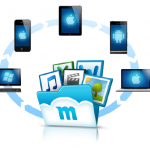
MegaCloud is a new, free-to-use cloud storage and backup service (compatible with Windows, Mac, Linux, and Mobile) that lets you store, sync and share all your documents, photos, music, videos and more across all of your devices. Unlike some similar services, having a free account doesn’t mean being restricted in any way -- all free users get 16GB of space, divided into 8GB for storage and 8GB for backups.
Well, that’s how much ordinary, everyday free users get. But obviously, as a BetaNews reader you deserve a little extra, so MegaCloud has kindly upped the free storage on offer to 21GB (13GB for storage, plus 8GB for backups) exclusively for us, and all you need to do is click on the link below and sign up for a free account. And if that’s still not enough free space for you, you can get yet more gratis storage simply by installing a mobile app or referring friends to the service.
Samsung brand perception rises, as Apple falls
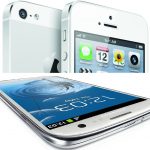
They say the apple doesn't fall far from the tree. But it does.
Samsung's brand has recovered from a disastrous low, demonstrating the benefits of aggressive, compelling marketing and the pitfalls of a competitor's public product problems. Make no mistake: Samsung's snarky attack ads, which make fun of iPhone idolators, are as effective today as they were when first aired in November 2011. The perception change, which puts Apple's brand lower, also shows the damage done by iOS 6 Maps and dissatisfaction with the company's response.
For every 8 pageviews, one comes from phone or tablet
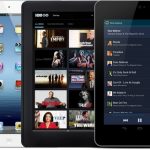
Americans still love their PCs for sitting back and surfing the web, but, hey, it's the post-PC era, baby and times are changing. In August, 13.3 percent of web pageviews -- from browsers, not apps -- went to mobile phones or tablets, according to comScore. That's double the number in a year.
Mobile phones accounted for 9 percent of pageviews and tablets 4.3 percent. The latter foreshadows the category's huge potential to disrupt the PC-browsing paradigm. Tablet install base is tiny compared to handsets.
Windows 8 is not about desktop market share

Windows 8 won't be as successful as its predecessor Windows 7, if pre-launch market share is an indicator of how well an operating system performs during its lifetime. Gregg Keizer's comparison of pre-launch adoption rates of Windows 7 and Windows 8 shows the latter is only one-fifth of its predecessor. Windows 7's market share was 1.6 percent of the overall market one month before launch, while Windows 8's market share at the same time is only 0.3 percent.
Is that an indicator that Windows 8 will become the new Vista or merely caused by different pre-launch conditions? Windows 7's predecessor is Windows Vista, an unsuccessful operating system if you look at its market penetration. Windows 8, on the other hand, follows on the much acclaimed Windows 7 operating system, which many users flocked to when it became clear that Microsoft did everything right that time.
Cloud's a highway, but I hit some speed bumps on the post-PC road

Call me a pioneer. Those who have followed my contributions of late will have noted that I'm somewhat of a post-PC fanatic. I've taken it upon myself to blaze a trail into an IT future that features virtually no Microsoft or Intel technologies. Along the way, I've managed to stitch together a fairly functional post-PC solution. However, my journey has not always been a smooth one, and I will forever carry the scars of slings and arrows gone by.
For example, as I write this I'm sitting in the nearly empty family room of the new waterfront condo my wife and I just bought near Manalapan, FL. And as is often the case with a new property, I have yet to set-up any sort of Internet access -- nor do I plan to do so since we'll only be staying in the property for a few days before returning to Mauritius.
LinkedIn identifies the top-10 endangered office tools and trends
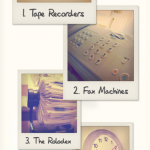
The office workplace is continually evolving. New technologies and trends -- like cloud computing and BYOD schemes -- are becoming more and more popular, but not every firm is willing to embrace the future, and many are stuck firmly in the past.
LinkedIn, the world’s largest social network for professionals, surveyed more than 7,000 members across the globe and asked them which of the current office tools and trends they expect to be extinct in five years’ time, combining the answers to produce the following top 10:
Chromebook changed my life

Four months ago, I put aside (and later sold) MacBook Air for the Samsung Series 5 550 second-generation Chromebook and never looked back. They say three times is a charm, and that proves true with my third foray using a laptop running Chrome OS. The first two proved life-changing, as I adopted a partial cloud computing lifestyle. Now I live a vigorous, charmed cloud life, which includes Android embrace.
Chromebook isn't easy, because it demands a thinking reset. I had to put aside concepts about everyday computing, fear of losing Internet connection and perceptions about hardware configurations and what's good enough performance value. Something else: When I started this journey, in December 2010, Chrome OS wasn't good enough, because there weren't enough supporting cloud apps. That has changed dramatically, because of Chrome Web Store and how much desktop-like utility Google now brings to cloud services like G+ or YouTube.
PC is no longer personal computer
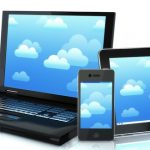
Do you own a Windows laptop, iPad and Android smartphone? Welcome to the post-PC era, which transition IDC describes as "profound". During second quarter, smartphones and tablets commanded 69 percent of smart device shipment share, dwarfing PCs.
"Recent shipment data clearly demonstrates that we have fully entered into the multi-device era, where individuals are buying and using multiple devices per person, most often with different combinations of operating systems", Bob O'Donnell, IDC vice president, says. "The implications of this development on application developers, device makers, Web service providers, businesses and even individuals is profound".
AMD-optimized Android apps could be suffering chipmaker's post-PC cure
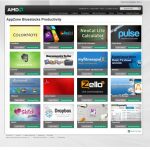
Today, Android virtualization company BlueStacks announced it has optimized its Android App Player for all existent and upcoming AMD GPUs and APUs under the name "AMD AppZone." AMD AppZone includes a Web-based Android app store, and the AMD AppZone Player for Windows 7 and Windows 8. This announcement highlights AMD's rather precarious position ahead of the launch of Windows 8.
Earlier in September, Citigroup analyst Glen Yeung downgraded Intel, AMD, and Nvidia on the basis that the consumer PC market has fully matured, and is no longer the growth segment it used to be, and that the real growth is in the "post-PC" businesses of mobile devices and cloud-based services.
Recent Headlines
BetaNews, your source for breaking tech news, reviews, and in-depth reporting since 1998.
© 1998-2025 BetaNews, Inc. All Rights Reserved. About Us - Privacy Policy - Cookie Policy - Sitemap.